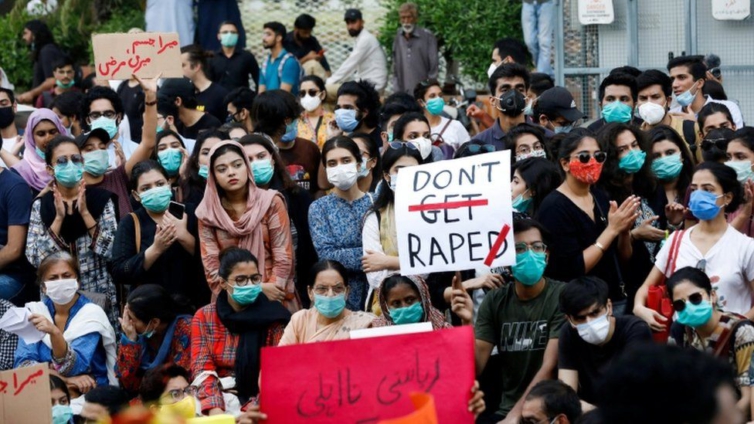Pakistan's president has signed a new anti-rape measure aiming to speed up convictions and toughen sentences.
The ordinance will create a national sex offenders register, protect the identity of victims and allow the chemical castration of some offenders.
Special fast-track courts will hear rape cases and will be expected to reach a verdict within four months.
It comes after a public outcry against sexual violence following the gang-rape of a woman outside the city of Lahore.
Pakistan anti-rape ordinance signed into law by president https://t.co/IlZvtEf1xC
— BBC Asia (@BBCNewsAsia) December 15, 2020
The woman was assaulted on the side of a motorway leading into the city in front of her two children. Lahore's most senior police official implied the following day that the victim had been partially at fault for the assault.
His comments and the brutal assault appalled Pakistanis, spurring a wave of demonstrations nationwide and forcing the government to promise action.
Prime Minister Imran Khan and his cabinet approved the legal measure last month, and President Arif Alvi signed it into law on Tuesday.
The government now has 120 days to take the measure to parliament and have it permanently passed into law. Until then the law will remain in force.
Some however have criticised the ordinance, saying the punishments are too harsh and arguing that officials did not follow the necessary consultation process before approving it.
Other countries already use chemical castration - medication to reduce testosterone - as part of their sentencing for sexual offenders: Indonesia passed a chemical castration law for paedophiles in 2016, while Poland made it compulsory for adults who rape children in 2009.
There has been growing awareness of sexual violence in Pakistan over the last few years.
In 2015, one woman was gang-raped in a remote village and footage of the attack appeared on social media. The country did not have laws to stop the footage from being shared online.
Latest Stories
-
Bright Simons: Is the World Bank saving or harming Ghana?
6 mins -
CAF Cup: RS Berkane banned from entering Algeria because of a map of Morocco with its Sahara
22 mins -
The media isn’t doing what is expected of journalism – Sulemana Braimah
36 mins -
Truck driver who caused train accident jailed 6 months
46 mins -
Music review: Okyeame Kwame proves rap dexterity on ‘No Competition’
53 mins -
How a 23-year-old fooled the internet with an AI Kendrick Lamar diss track
1 hour -
No man should be intimidated by the strength of a woman – Charlotte Oduro
1 hour -
Ghana is not immune to terrorist attack – National Security
1 hour -
WAFU B U-17 Championship: Ghana drawn in Group A, face Benin and Cote d’Ivoire
2 hours -
Two hit by stray bullet as Police clash with ‘wee smokers’
2 hours -
Peter Amewu blames truck driver recklessness for train accident
2 hours -
Okyeame Kwame aims for another Artiste of the Year win after 15 years
2 hours -
NAGRAT gives government one-week ultimatum to redeem unpaid pensions for 700,000 workers
2 hours -
Deloitte launches Technology, Media and Telecom predictions for 2024
2 hours -
Meta AI expands to Ghana, Nigeria and other countries in Africa; adds new features
3 hours

